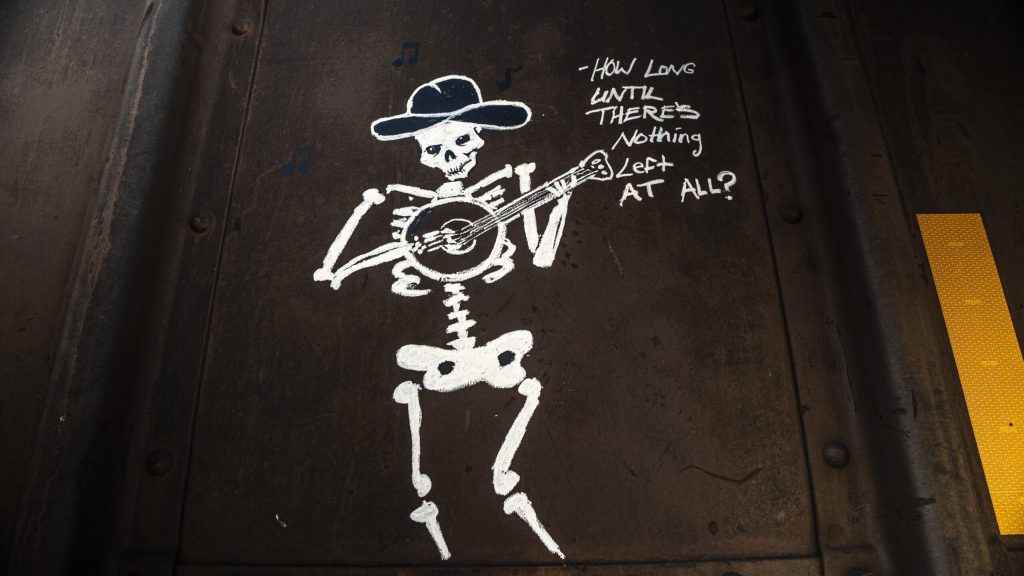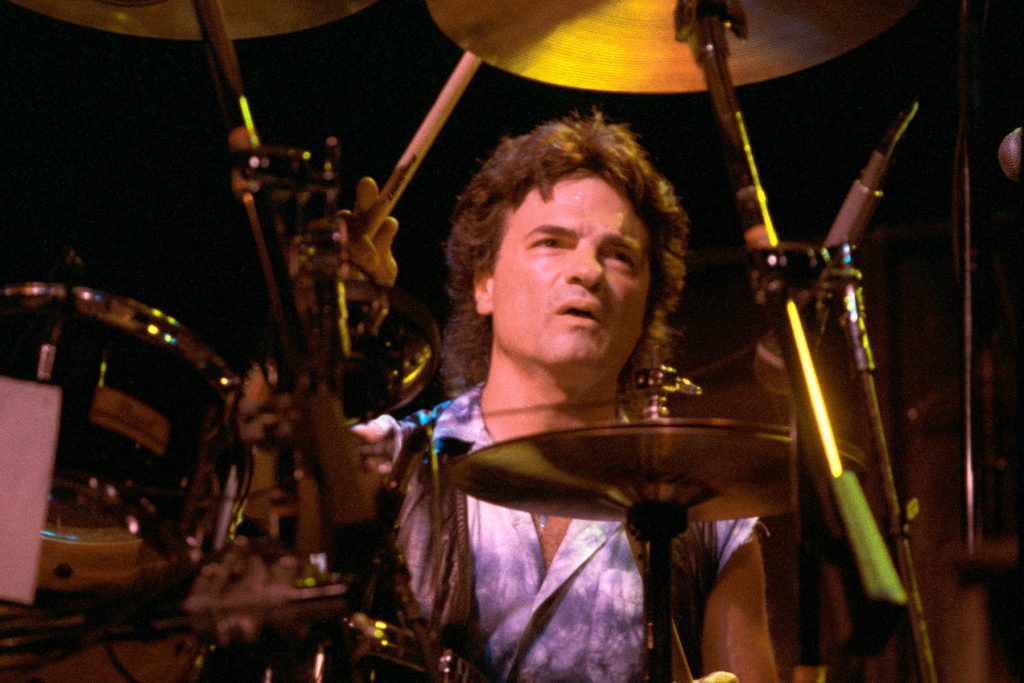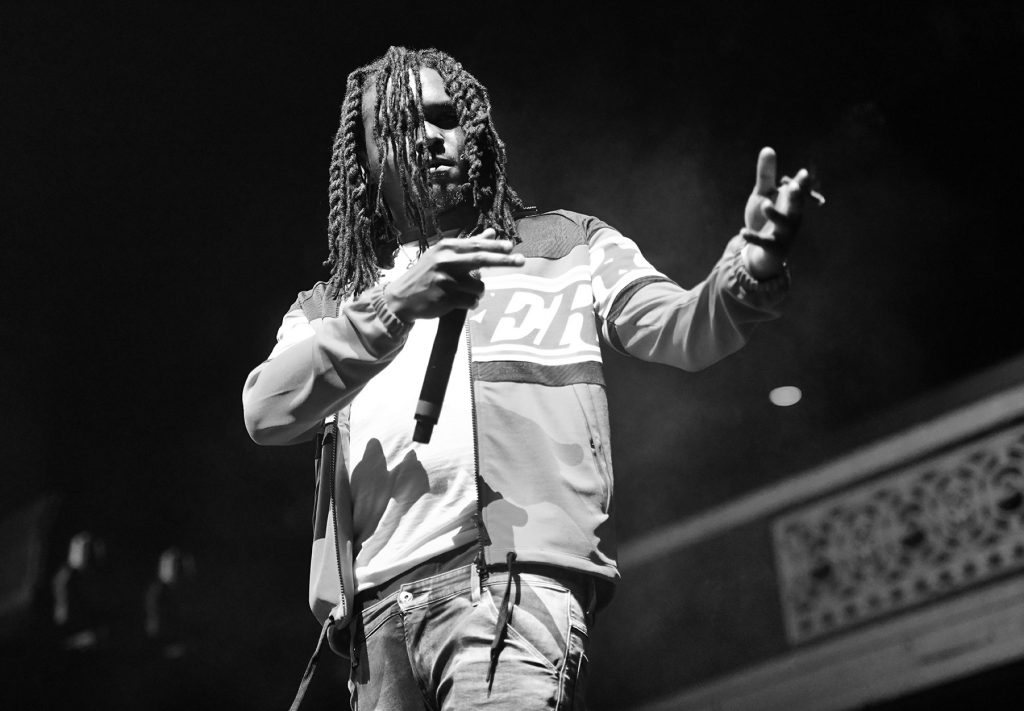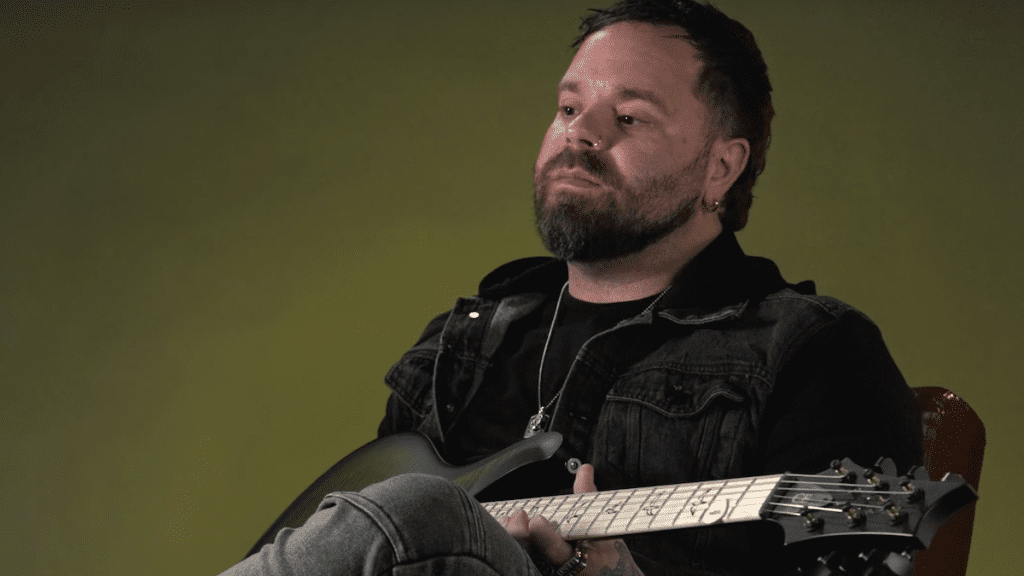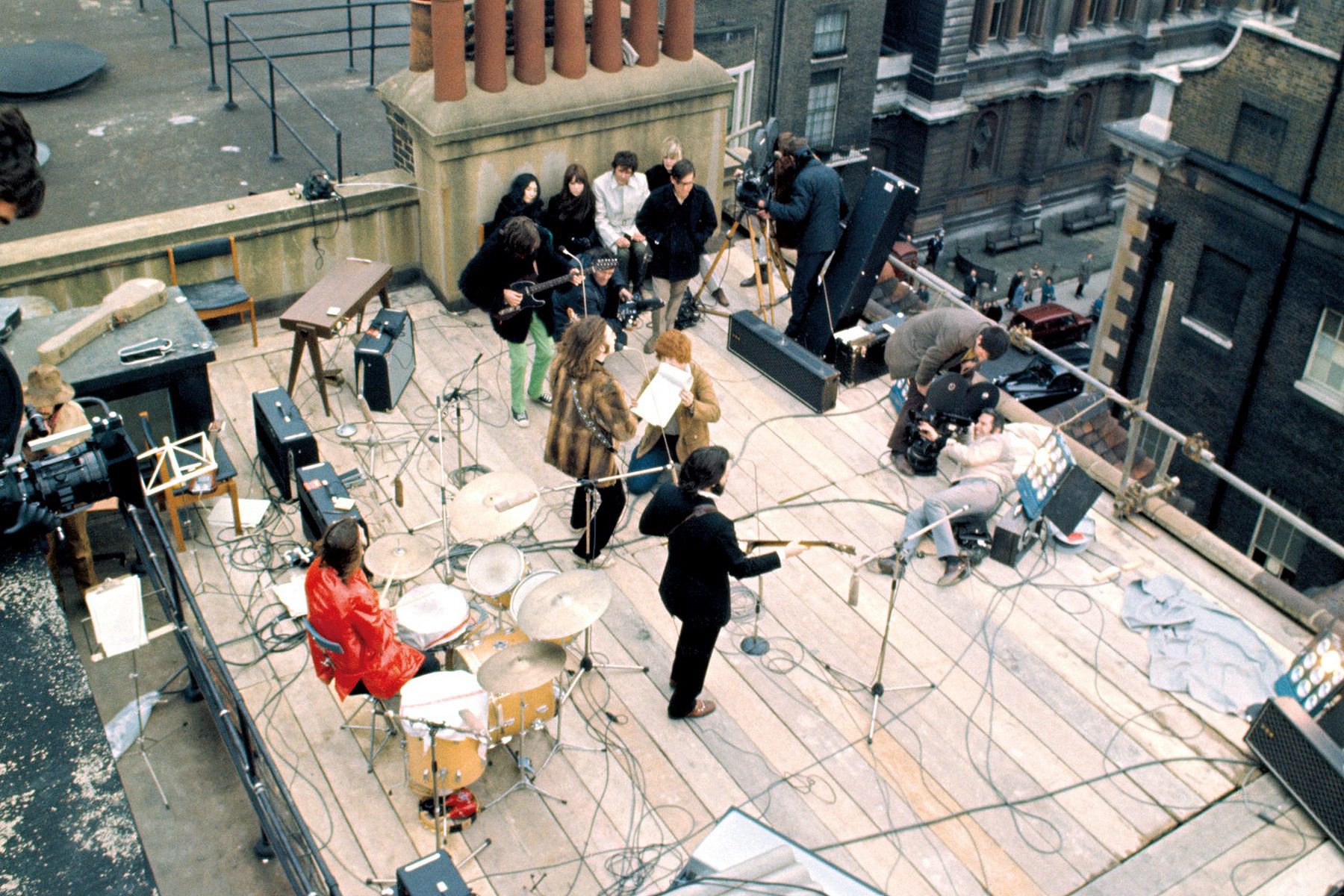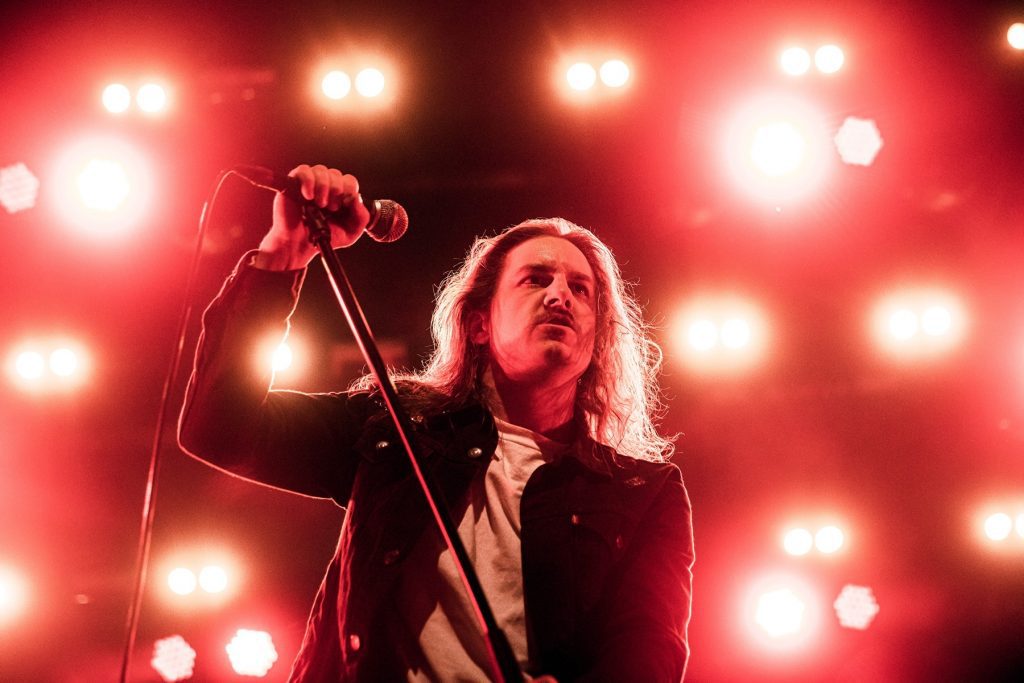
Remembering Power Trip’s Riley Gale, a Ferocious Frontman Who Made You Feel Like Family
I don’t actually remember the first time I met Riley Gale, late vocalist of the exceedingly heavy thrash-metal band Power Trip, but I remember the second.
As with so many other stories about meeting Riley, it was outside of a punk show, at a Toronto festival called Not Dead Yet. We were hanging out between bands, probably taking sips of beer out of our jacket pockets, shooting the shit. I noticed immediately that Riley looked you in the eye. He laughed at jokes. He asked questions. He introduced you to his other friends. While surrounded by his people, he made sure that everyone who wanted to be included was an integral part of the crew. In every act and interaction, Riley built community.
From his childhood friends from the Dallas–Fort Worth hardcore scene, to his many supporters from America to Mexico to Singapore, if you were a fan of Power Trip, you had a Riley story or two. And in the day since news broke of his passing at the age of 34, those stories have been retold, shared, likely embellished; his legend grows.
When it came to the music, and the scene that surrounded Power Trip, if you were a fan, you were family — it didn’t matter if you saw them on tour with metal heavyweights like Anthrax, Lamb of God or Exodus, or in a tiny club with a bunch of punk bands. At these shows and on the band’s records, Riley Gale was grappling with the world around him in his lyrics, confronting the bleak state of modern society while encouraging the listener to engage. In “Waiting Around to Die” off Power Trip’s 2017 LP Nightmare Logic (which IndieLand named as one of the top 20 metal albums of that year), he shouts, “Human being has lost its meaning when you refuse to fight.” Riley channeled the aggressive energy of metal into a message that meant something, that motivated people rather than intimidated them.
As approachable as he was offstage, once a Power Trip show began, Riley was an unstoppable force. (“We’re Power Trip from Dallas, Texas. Let’s fuck this shit up,” he’d tell crowds.) The fury and precise explosiveness of his band is undeniable. And there was Riley, jumping as high as an NBA star, Slayer baseball hat in hand with his past-shoulder-length hair flailing, microphone stand over his head, directing the crowd to make a bigger circle pit.
During the past decade, Power Trip gradually became a band whose performances you’d fixate on for days, weeks, maybe years after. I regularly think about Power Trip sets I’ve seen in basements, bars, and halls. Hell, I think about Power Trip sets I’ve seen on YouTube. And I think about how Riley would always come off stage having so obviously left everything he had out there, collapsing in a ball of sweat onto whatever surface or floor was closest.
Power Trip united metal and punk, both sonically and in their fan base, as they recalled heroes like Pantera, Metallica, and Megadeth, and paid homage to the heyday of Eighties “crossover,” when bands like D.R.I. and Corrosion of Conformity built similar bridges. Their signature song “Executioner’s Tax (Swing of the Axe),” also on Nightmare Logic, was an instant classic, the kind of anthem that every band wants to write. Rather than expanding the vocabulary of their genre, Power Trip absolutely perfected the form. Their arrangements gave fans room to get lost in the riff, while often inspiring them to literally backflip off the stage, with Riley at the middle of it all. The prospect of not seeing bands play for another year, or two, or three, is a hard piece of reality to swallow. The prospect of not being able to see Power Trip ever play again with their late frontman at the helm is absolutely crushing.
During the past five years or so, I saw Power Trip play all over the world, from New York and Texas, to Europe and Asia. At each show, Riley introduced me to more and more of the Power Trip family, his bandmates, his fans. So many times I’ve thought about how grateful I am for the way these wild, smart, hilarious boys from Texas welcomed me, and so many others, onto the team. To get a text from Riley after the second show of a two-night New York Power Trip stand (I had only attended night one) saying “where are you i love you” was a simple gesture, but it means everything.
This past Tuesday, as news started to spread about Gale’s death, I received a message from a Texas friend that read “bro this fucking sucks about Riley.” My heart sank. I didn’t want to know what text was coming next. Tributes and photos started filling up my social media feeds. Ice T, John Brannon of Negative Approach, and rapper Trinidad James all paid their respects on Twitter. Countless other peers told their stories of how much Riley meant to them, of how he supported their bands, of how his larger-than-life presence inspired their own music and careers. One friend recounted the importance of the vocalist hanging out with him and his since-passed dad at a show, while another hilariously remembered a near-brawl between Power Trip and the band Suicide Silence.
From the strangers to the ride-or-dies, the love shown for Riley, his band, and all their associated hijinks has been immense. It’s not very often that a DIY act grows to the point that they can make a living off of their band, touring the world playing the music they love; it’s even rarer that they don’t come out sucking on the other side.
One night in 2016, I was in Berlin, Germany, about to hit the road selling merch on a European tour with Sheer Mag. (That band sounds nothing like Power Trip, but Riley later brought them on tour; Power Trip were constantly pulling up bands from the DIY punk scene to come along for the ride). A friend in Berlin who plays in the awesome post-punk group Diät told me Power Trip were playing, so I pulled up to the gig unannounced, stoked to see my friends from Texas crush another show, as I just happened to be in the right town in the right country at the right time.
Riley handed me a T-shirt after the show. We hit an empty sidewalk bar and laughed and spent the rest of the evening getting drunk. For Power Trip, I’m sure it was just another night on the road, playing a gig. For me, running into a gaggle of friends whose music I loved, and having Riley introduce me to new people who I keep in touch with to this day, made it a night I still reminisce about.
One night in 2018, this time on the tail end of a Sheer Mag tour in Japan, I went to see Power Trip play in Tokyo. I interviewed Riley right before the gig (I was still taking his photo while his band was set up onstage). He told me he was nervous about the response Power Trip would receive from the crowd, it being their first time playing a show in Japan — but the crowd chanted their name between songs, and sang along to every word in a non-native language.
During that interview, Riley told me about the support he received from his parents for his music, and about the influence a college English professor had on his lyrics. He told me about the deeper meanings of the seemingly simple lines he was shouting into the mic. On Tuesday night, still in complete shock about his death, I couldn’t help but get stuck on the following statement, while watching the racist, violent propaganda of the Republican National Convention in the background.
“Do I think in my lifetime we’re gonna see some sort of full-scale war or really fucked up epidemic? Yeah I do,” he said. “Whether it’s environmental or sociopolitical, I think something bad is gonna happen. If I can bring some attention to what I think is worth being upset over, if I can point people in what I think is the right direction, then maybe I can put this off for a few more years. I kind of think we’re past the point of no return. So a lot of it is coping. If I get out and try and write something worthwhile, I don’t feel as bad.”
Riley knew what was happening in the world. Everywhere he went, he told people, and showed them a vision for a better way. His music may have sounded ferocious but as a presence, and as a person, he invited you in. I’m going to miss him.
